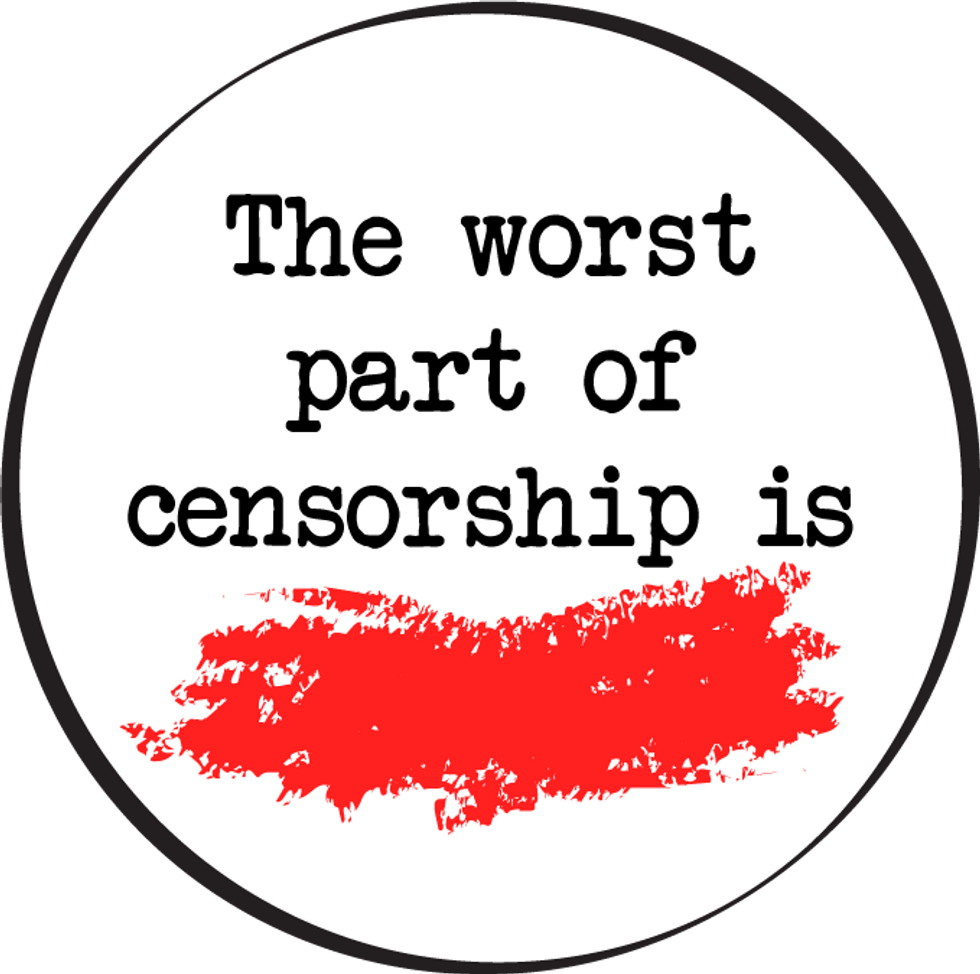As I’m strolling through campus one sunny afternoon, a strange noise catches my attention. I continue walking, and it isn’t long before I see what is causing all the commotion. One man stands on a pedestal, Bible in hand, and yells at passersby about the evils of ignoring God and how the majority of us are doomed to eternal damnation. A second man stands on the ground, offering pamphlets to any who linger too long. A sign near him proclaims: “Evolution is a lie.” I can’t help but laugh as I pass. Not at either man or their beliefs, but at the sign. It’s one thing to debate morality and policies, because those are things we can make real changes to. But as astronomer Neil Degrasse Tyson says, “The good thing about science is that it’s true whether or not you believe in it.”
Of all the Constitutional amendments, the first one has to be my favorite. “Congress shall make no law respecting an establishment of religion, or prohibiting the free exercise thereof; or abridging the freedom of speech, or of the press; or the right of the people peaceably to assemble, and to petition the Government for a redress of grievances.”
As a writer, the right to free speech is as powerful as sword and shield. I consistently remind myself what a privilege it is to speak and write as I see fit, without fear of retribution. Everyone, from the Westboro Baptist Church to the Church of Scientology to the two men preaching on my campus should be allowed to exercise their right to speak freely, and, in that instance, I will defend them to the death.
However, the amendment merely prohibits any government from making a law against free speech. It does not stop an individual or organization from vehemently and vocally disagreeing with you. You can stand on a hilltop and shout that “1 + 1 = 3” all you like, but your right to say that does not make your statement accurate. The 1st amendment ensures that you can say whatever you like for as long as you like, but it does not protect you from those who will disagree with you, or prove you wrong.
This distinction is essential as society moves forward. We cannot allow individuals or groups to publish false information uncontested, as they claim to uphold “free speech”. We must exercise our own right by correcting them and holding them to a high standard. Language is powerful, and if the wrong facts stay around for too long, they can take root and disrupt the truth. Words do not exist in a vacuum, and can have long reaching and devastating effects.
In 1998, Dr. Andrew Wakefield published a fraudulent research paper that claimed there was a connection between vaccinations and autism diagnoses. Since then, his results have been proven false by multiple medical organizations, and resulted in the loss of his medical license. But the damage was already done. Since then, vaccination rates have decreased, and cases of mumps and measles have increased. People who continue to perpetuate these pseudoscientific myths do so because they have the right to speak as they wish. Free speech is a right, but it does not excuse the damage they have done by not condemning these claims.
It’s not easy to tolerate hate speech. I can still hear the congregation around me, giving a standing ovation for their preacher. It is June 27th, 2015 and same-sex marriage has just been made legal. I am sitting in church, listening to a fellow human say that I deserve suffering and hatred. It is never easy to listen to hate speech. In the case of morality, in instances where we cannot use scientific hypothesis to back up our claims, we must use our voices to drown out theirs. If they have the right to say what they wish, then we must speak louder. There is no easy solution to this problem. But the one thing that costs nothing and we have in abundance are our words. We would do well to use them wisely.
















